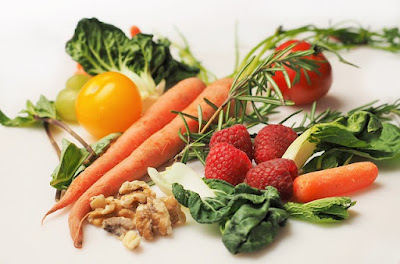Are you beginning to think you should become food self-sufficient?
You've seen significant price increases at the grocery store. It seems there's no end in sight.
The USDA predicts, “Food prices are expected to grow more slowly in 2023 than in 2022 but still at above historical-average rates. In 2023, all food prices are predicted to increase 6.5 percent, with a prediction interval of 4.9 to 8.2 percent. Food-at-home prices are predicted to increase 6.6 percent, with a prediction interval of 4.4 to 8.8 percent. Food-away-from-home prices are predicted to increase 8.2 percent, with a prediction interval of 7.3 to 9.0 percent.”
But that's not all the bad news.
Fertilizer production seems to be at risk.
A recent dairy farm explosion destroyed 18,000 cattle. That's got to have an impact on the food supply.
In January, 2023, 100,000 chickens died in a Connecticut egg farm fire.
In 2022, 18 weather and climate disasters, each with damages exceeding $1 billion struck the U.S. coast-to-coast.
More than 500,000 US farm animals died in barn fires in 2022. Most fires occurred in the Upper Midwest and Northeast.
This FDA website lists the following recent food recalls:
- Recalls of Food Products Associated with Peanut Butter from J.M. Smucker Company due to the Potential Risk of Salmonella,
- Recalls of Food Products Associated with Onions from ProSource Produce LLC and Keeler Family Farms due to the Potential Risk of Salmonella.
- Recalls of Food Products Associated with Onions from Thomson International, Inc. due to the Potential Risk of Salmonella.
- Recalls of Vegetable Products Associated with Mann Packing Co., Inc. due to the Potential Risk of Listeria monocytogenes.
- Recalls associated with Almark's recall of hard-boiled egg products.
We hear news too often about some fresh vegetable being recalled due to contamination. ABC News recently warned, "Check your fridge for these salad kits and lettuce recalled due to listeria concerns."
The Market Realist reports, "In May (2022), there was a fire at a commercial egg farm in Minnesota that left thousands of chickens dead. Fortunately, the fire incident didn't lead to the loss of human lives. The egg farm fire comes at a time when some areas have been witnessing an egg shortage. What caused the fire at Forsman Farms? Was it an accident or intentional?"
Eat This, Not That! recently listed 12 Major Food Recalls You Need To Know About Right Now.
There's more, but you get the idea.
Dependence on the system sometimes seems precarious. So, you might have the urge to do something for yourself. Some of us have the time and places to garden, raise poultry or rabbits and such, but I expect that most folks do not. So, what do you do if your resources are very limited?
Start small.
Assess your space, time, physical ability and any other limiting factors. Write them down.
Make a list of vegetables that you like to eat a lot of: beans, radishes, lettuce, eggplant, tomatoes, chard, okra, peas, squash, onions, garlic, shallots, turnips, mustard, peppers, etc. Don't forget your herbs and spices: thyme, parsley, rosemary, oregano, marjoram, basil, dill, ginger root, turmeric and such. How about fruits? Strawberries, anyone?
Do a little research to learn which of them are easy to grow in your area. Are they prone to pests, or not? Will your neighbors mind? How much sun should they receive? How much water? Can they be grown in small spaces? Will they thrive in containers? Can any be grown indoors on a windowsill or under a grow-light?
Let's say, for example, you love radishes and you can't do without them. Radishes are easy-peezy to grow. They take up very little space, germinate quickly, mature for harvest in a few short weeks, and then you can start all over again. Eat radishes fresh or pickle them. It might not seem like a lot, but you can easily become self-sufficient in radishes.
Is that all you can manage? Okay. If not, add another plant to your list.
How about thyme? You can grow thyme indoors year around. It's compact, delicious and has many health benefits. Set your mind to growing it and you might never need to buy thyme again.
There are many such things you can grow to eat fresh, dry, preserve, can and store for future use.
There's no way that most of us can be self-sufficient in everything we need. But we can become self-sufficient in something. If you can become self-sufficient in only one or two foods, you won't
feel so helpless. You'll feel safer, good about yourself and your
accomplishment, and you'll save some money, too.
Return to GoGardenNow.com.






No comments:
Post a Comment